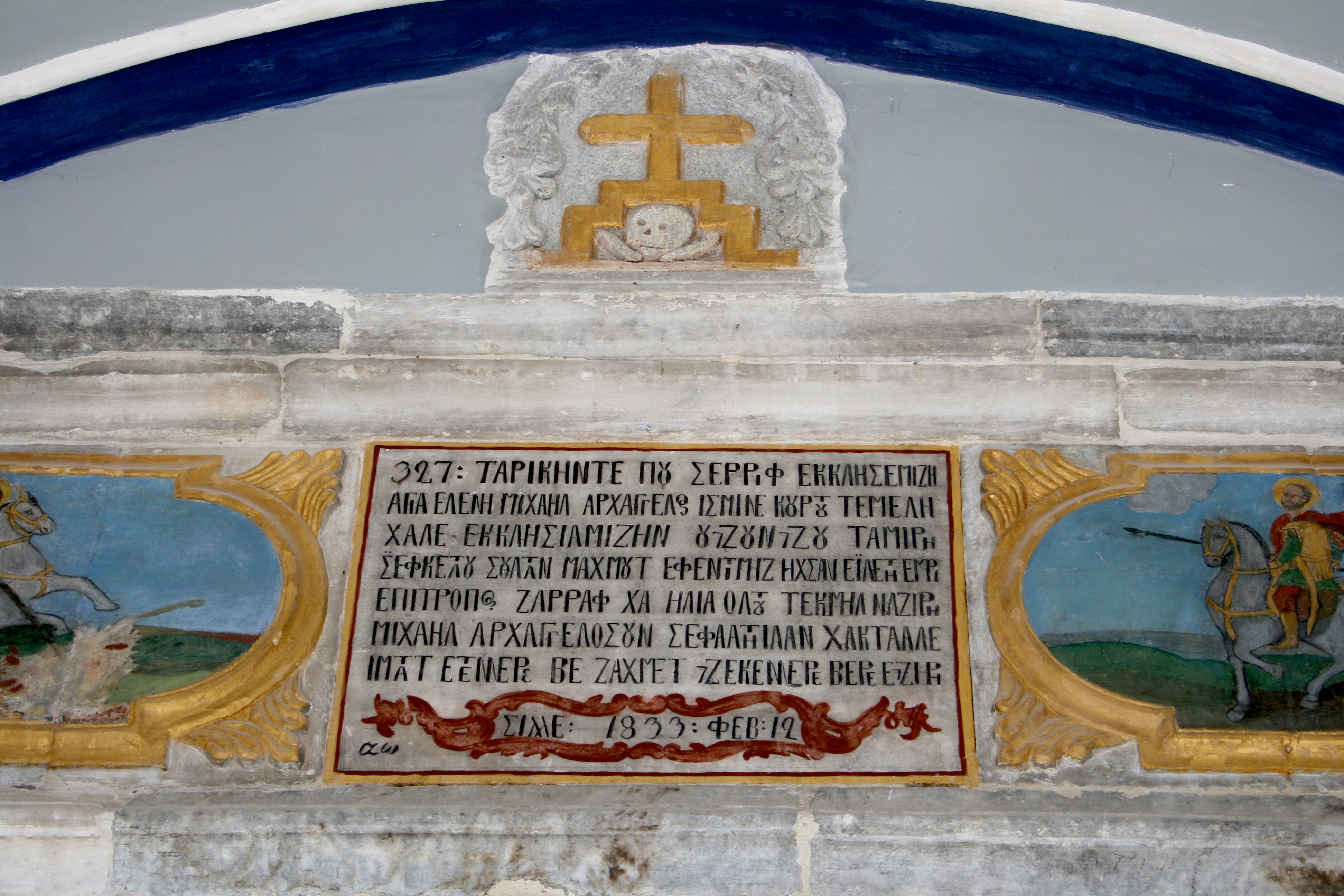|
Mustafapaşa, Ürgüp
Mustafapaşa, formerly known as Sinasos (Greek: Σινασός), is a town(''belde'') in the Ürgüp District of Nevşehir Province, Turkey. Its population is 1,295 (2022). Its status as a town had been downgraded to village with 2013 Reorganisation up until the court order in 2024. It lies to the west of Gomeda valley and is away from Ürgüp and away from Nevşehir town. There are two main explanations of the origin of its name. One is being named after Mustafa Kemal Atatürk, the military leader and first president of Turkey. And other being named after a local hero called Mustafa Pasha, who got a well drilled to the village to solve its fresh water problem. Like most of Cappadocia, Mustafapaşa used to depend for a living on agriculture., especially grape-growing. However, it lies within the region of Cappadocia, and increasingly depends on tourism for its living with new hotels opening all the time. The town center is home to many buildings of Cappadocia University one of ... [...More Info...] [...Related Items...] OR: [Wikipedia] [Google] [Baidu] |
Greek Language
Greek (, ; , ) is an Indo-European languages, Indo-European language, constituting an independent Hellenic languages, Hellenic branch within the Indo-European language family. It is native to Greece, Cyprus, Italy (in Calabria and Salento), southern Albania, and other regions of the Balkans, Caucasus, the Black Sea coast, Asia Minor, and the Eastern Mediterranean. It has the list of languages by first written accounts, longest documented history of any Indo-European language, spanning at least 3,400 years of written records. Its writing system is the Greek alphabet, which has been used for approximately 2,800 years; previously, Greek was recorded in writing systems such as Linear B and the Cypriot syllabary. The Greek language holds a very important place in the history of the Western world. Beginning with the epics of Homer, ancient Greek literature includes many works of lasting importance in the European canon. Greek is also the language in which many of the foundational texts ... [...More Info...] [...Related Items...] OR: [Wikipedia] [Google] [Baidu] |
Karamanlides
The Karamanlides (; ), also known as Karamanli Greeks: "Turkophone Greeks are called Karamanli Greeks or Karamanlides, and their language and literature is called Karamanli Turkish or Karamanlidika, but the scholarly literature has no equivalent terms for Turkophone Armenians." or simply Karamanlis, are a traditionally Turkish-speaking Greek Orthodox people native to the region of Karaman in Anatolia. Some scholars regard Karamanlides as the Turkish-speaking Greeks from Karaman, though their exact ethnic origin is disputed; they could either be descendants of Byzantine Greeks who were linguistically Turkified, or of Christian Turkic soldiers who settled in the region after the Turkic conquests, or even both. The Karamanlides were forced to leave Anatolia during the 1923 population exchange between Greece and Turkey. Today, a majority of the population live in Greece and have fully integrated into Greek society. Language Writers and speakers of Karamanli Turkish were exp ... [...More Info...] [...Related Items...] OR: [Wikipedia] [Google] [Baidu] |
Villages In Ürgüp District
A village is a human settlement or community, larger than a hamlet but smaller than a town with a population typically ranging from a few hundred to a few thousand. Although villages are often located in rural areas, the term urban village is also applied to certain urban neighborhoods. Villages are normally permanent, with fixed dwellings; however, transient villages can occur. Further, the dwellings of a village are fairly close to one another, not scattered broadly over the landscape, as a dispersed settlement. In the past, villages were a usual form of community for societies that practice subsistence agriculture and also for some non-agricultural societies. In Great Britain, a hamlet earned the right to be called a village when it built a church.-4; we might wonder whether there's a point at which it's appropriate to talk of the beginnings of French, that is, when it wa ... ''village'', from Latin ''villāticus'', ultimately from Latin ''villa'' (English ''villa''). Ce ... [...More Info...] [...Related Items...] OR: [Wikipedia] [Google] [Baidu] |


